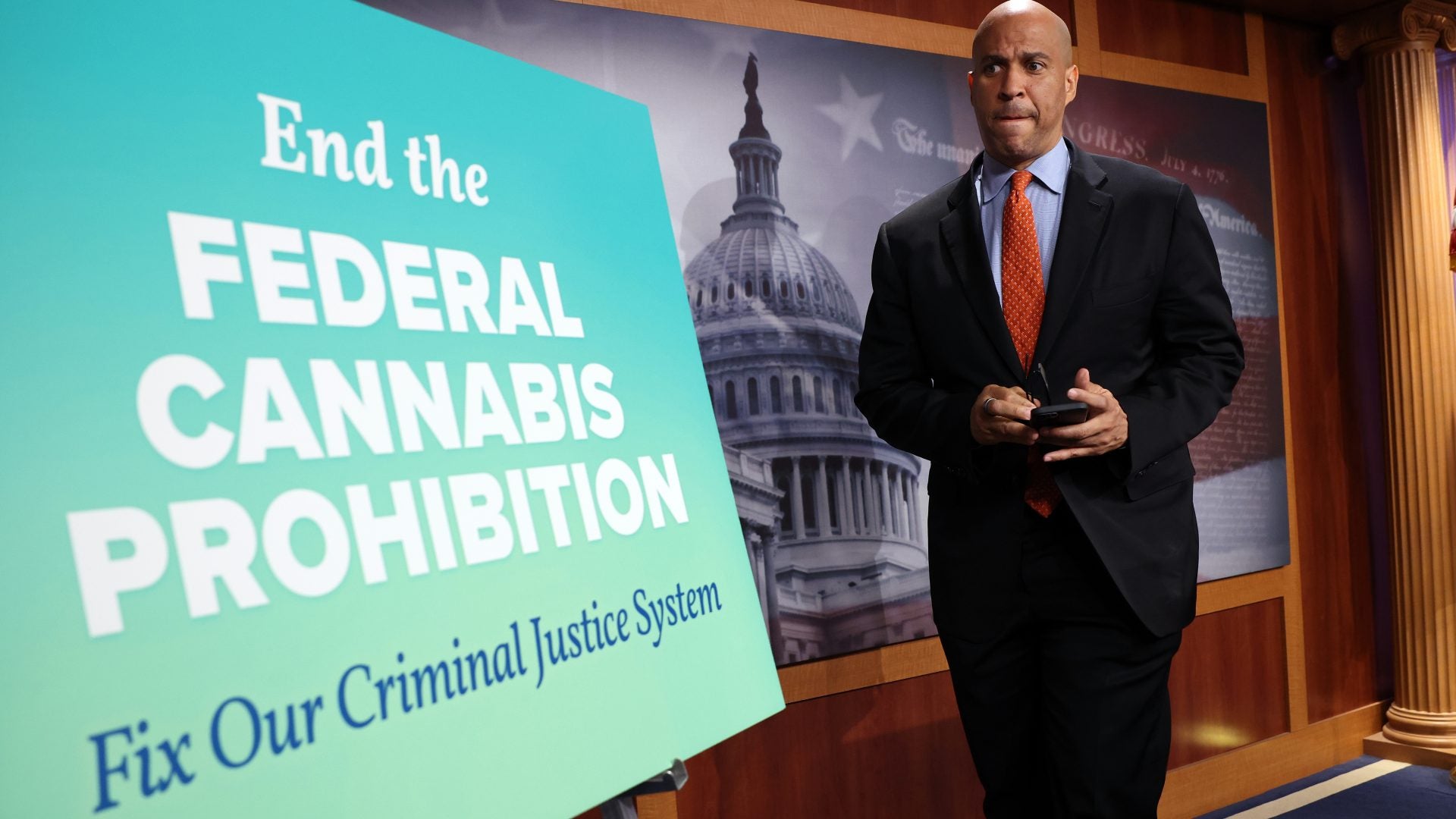
Yesterday, Senator Chuck Schumer (D-NY) proposed legislation with Senate Finance Committee Chairman Ron Wyden (D-OR) and Sen. Cory Booker (D-NJ) that would “decriminalize marijuana at the federal level, putting [Senator Schumer’s] weight as majority leader behind a growing movement to unwind the decades-old war on drugs,” the New York Times reports.
The bill, the Cannabis Administration and Opportunity Act, would eliminate cannabis as a federally-controlled substance and offer reparations to communities who have been adversely impacted from years of unjust federal drug policies, “immediately expunging nonviolent marijuana-related arrests and convictions from federal records and would earmark new tax revenue for restorative justice programs intended to lift up communities.”
After introducing the proposal, Sen. Schumer stated, “The war on drugs has really been a war on people, particularly people of color…The waste of human resources because of the historic over-criminalization has been one of the great historical wrongs for the last decades and we are going to change it.”
Wyden has referred to the bill as “cannabis common sense,” and Senator Booker, a longtime advocate, said “Lives are being destroyed every single day and the hypocrisy of this is that, right here in the Capitol now, people running for Congress, people running for Senate, people running for president of the United States, who readily admit that they’ve used marijuana, but we have children in this country people all over this nation, our veterans, black and brown people, low income people, now bearing the stain of having a criminal conviction for doing things that half of the last four presidents admitted to doing,” ABC reports.
On the House side, Jerry Nadler (D-NY), the House Judiciary Committee Chairman re-introduced the Marijuana Opportunity Reinvestment and Expungement (MORE) Act of 2021 earlier this year in May. Last session, the bill was passed by the House but failed in the Senate. Despite both chambers introducing similar bills, this movement continues to face an uphill battle, as Sen. Schumer has indicated he does not even have the full backing of his caucus, as even some Democrats are uncomfortable with potential future implications.
This legislation was introduced at an apt time, as the issue was thrust into the spotlight with sprinter Sha’Carri Richardson’s suspension from the Olympic Games after a failed drug test due to marijuana use, prompting a heated debate over cannabis usage. Meanwhile, polling shows that the majority of Americans support legalization of marijuana. Thus far, 18 states have legalized recreational marijuana use, and 37 states plus the District of Columbia, Guam, Puerto Rico, and the U.S. Virgin Islands permit its use for medicinal purposes.
In 2020, the American Civil Liberties Union (ACLU) released a report, “A Tale of Two Countries: Racially Targeted Arrests in the Era of Marijuana Reform,” and the findings indicated that “stark racial disparities in marijuana possession arrests have remained unchanged nationwide. On average, a Black person is 3.64 times more likely to be arrested for marijuana possession than a white person, even though Black and white people use marijuana at similar rates.”
While the introduction of these bills are positive steps forward, as Kassandra Frederique, Executive Director of the Drug Policy Alliance states, “we need to go beyond marijuana law reform. Our country still arrests one person every 23 seconds for drug possession. Our work will not be done until we end all drug possession arrests, repair the damage done by expunging drug arrest records, and reinvest in communities harmed by racially targeted policing.”
